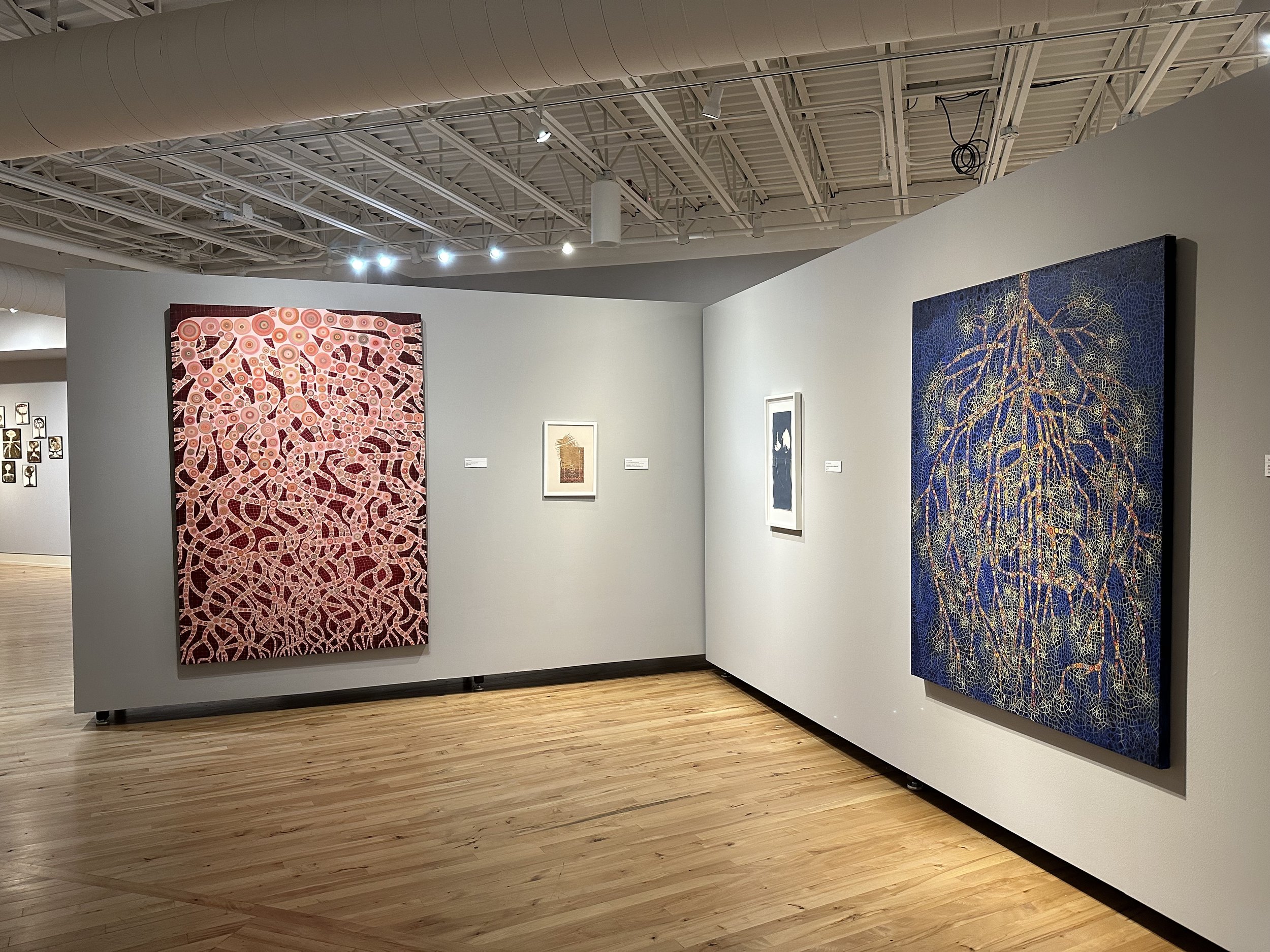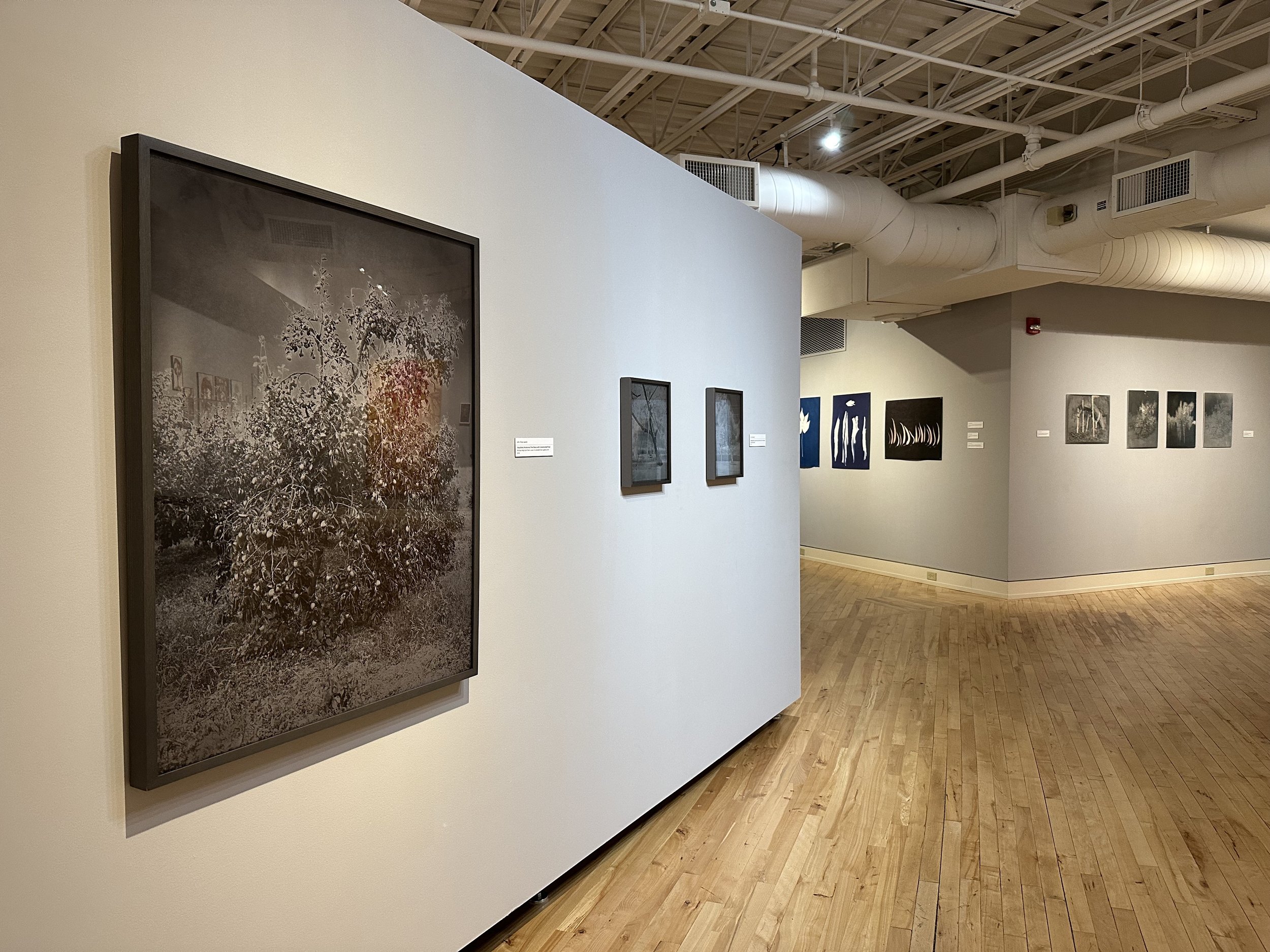Erie Art Museum, May 24 - EXTENDED THROUGH NOVEMBER 19, 2023
Erie Art Museum Quarterly, Spring 20233, Issue 1:4
Erie Art Museum, May 24 - EXTENDED THROUGH NOVEMBER 19, 2023
Erie Art Museum Quarterly, Spring 20233, Issue 1:4






elin o'Hara slavick, Madeleine Slavick, Sarah Slavick, and Susanne Slavick
USA TOUR:
Sordoni Art Gallery, Wilkes University, Wilkes-Barre PA, April 22 – June 1, 2025
Martin Art Gallery, Muhlenberg College, Allentown PA, January – March, 2025
Erie Art Museum, Erie PA, May 18 - November 19 , 2023
Dowd Gallery, SUNY Cortland, October 24 - December 2, 2022
Erie Art Museum gallery tour here
Erie Art Museum installation documentation here
Dowd Gallery virtual tour here
Dowd Gallery documentation here
10min videos by the four artists here
An extensive Maine Art Journal article about the project here.
Dowd Gallery press release here:
Info here
Programmed events at SUNY Cortland here. (Scroll down chronologically.)
_________
The College Art Association CAA Committee on Women in the Arts chose Family Tree Whakapapa as an April 2021 pick with this summary:
This exhibition brings together the artwork of four sisters living in different parts of the globe and focuses on the related but distinct ways they engage with the arboreal imagination. Tangled into their photographs, paintings, life histories, and political commitments, the trees in their artwork are intricate lines, bold shapes, diffuse traces, and stylized patterns. Defying the ease with which the genealogical and botanical connect in the figure of the family tree, the Slavick sisters make it a thing of wonder: rooted in the ground and multiplying in our imaginations, family trees are botany and biology written with longing, hope, history, and loss.
FAMILY TREE features the work of four sisters: elin o’Hara Slavick (Irvine CA), Madeleine Slavick (Wairarapa, New Zealand), Sarah Slavick (Boston MA) and Susanne Slavick (Pittsburgh PA). As curators, painters, photographers and writers, all have incorporated images of trees in social, political and environmental conditions — trees that stand as refuge and livelihood, consumed and consuming, under assault and triumphant, as historical record and as harbinger of things to come. The exhibition offers perspectives both unsettling and soothing as nature increasingly reflects salient issues of our times.
In its beauty and bounty, nature is often regarded as benign and apolitical. We do not expect a tree to assume an editorial stance or embody ideology. The conceptual, analytical and sensual intersect in Family Tree with works that probe the multitude of relations within and between trees and humans. Branching out to, and from, the world, the artists address a variety of concerns.
Based on her experiences in Japan, elin o’Hara slavick presents photographic works that bear witness to the ongoing aftermath of atomic bombs in Hiroshima and Nagasaki and the nuclear power disaster in Fukushima. Madeleine Slavick’s photographs reveal dichotomies and their collapses in our experience of nature in environments both rural and urban—they decry the marginalization of trees. Sarah Slavick’s paintings explore the underground life of trees in an elegiac series that conveys both grief and hope, for what is threatened and for what might survive through possible strategies that trees offer—for all species on the planet. Susanne Slavick hand paints trees derived from ‘tree of life’ carpet designs over printed scenes of environmental destruction and depredation. These trees do not lie down like doormats; they rise up and persist, suggesting the possibility of recovery.
FAMILY TREE WHAKAPAPA premiered at Aratoi Wairarapa Museum of Art and History, Masterton, New Zealand, December 12, 2020 – February 14, 2021 and traveled to Wallace Arts Centre, Auckland, NZ, April 21 - June 13, 2021.
Note: "Whakapapa" is a Maori concept that refers to placing oneself in a wider context, and linking oneself to land and community.
Watercolor/ink on Arches paper, 22.5” x 30” each
Archival inkjet prints, Diptych, 47 x 22 inches each
Silver gelatin prints manipulated in the darkroom, mounted, unframed, 11” x 14” each
A selection from 528 chemical drawings (developer and fixer) on outdated/fogged silver gelatin paper left in a Caltech darkroom
Gouache on archival inkjet print on Hahnemühle paper
13 framed works , 13.25 x 19.25 inches each
Oil, acrylic and Galkyd on three panels, 80 x 109 inches each
Archival inkjet prints, Triptych, 21.25 x 17.25 inches each, framed
Trees that survived the A-bomb in Hiroshima, solarized silver gelatin prints, framed, 8.5” x 11”
Archival inkjet print from a scan of a solarized silver gelatin print, framed, 32.5” x 41”
Oil/canvas, 72 x 48 inches
Archival inkjet print, 13.25 x 19.25 inches framed
Oil/canvas, 56”x 44”
Archival inkjet prints, 17.25 x 21.25 inches each framed
Gouache on archival inkjet print on Hahnemühle paper. Sources: Simon de Trey White, World Wildlife Fund UK, Nepal firewood. Tree of Life design from English embroidered canvas, first half 17th century, Metropolitan Museum of Art, NY. 62.5 x 33 inches
Archival inkjet prints, Diptych, 47 x 22 inches each
Solarized silver gelatin print, 16 x 20 inches
One of 528 chemical drawings (developer and fixer) on outdated/fogged silver gelatin paper left in a Caltech darkroom, 8” x 10”
Triptych of archival inkjet prints, 19.5 x 15.5 inches each
Oil, acrylic and Galkyd on three panels, 80 x 109 inches
Oil, acrylic and Galkyd on three panels, 80 x 109 inches
Oil/canvas, 72 x 48 inches
Archival inkjet print, 19.25 x 13.25 inches framed
Gouache on archival digital print on Hahnemühle paper, 72 x 36 inches
Oil/canvas, 56 ¾ x 44 inches
A selection from 528 chemical drawings (developer and fixer) on outdated/fogged silver gelatin paper left in a Caltech darkroom, 8” x 10” (various dimensions)
Watercolor/flasche/ink on arches paper, 22.5 x 30 inches
Watercolor on Arches paper, 22.5 x 30 inches each
Organic matter collected in 2008